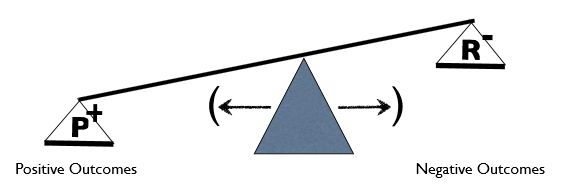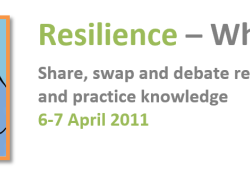Boingboing blogs from… the Resilience Forum!
Resilience in Practice: the Blackpool model – Pauline Wigglesworth & Marc Chevreau, London Resilience Forum – Tuesday 11 August 2015
by Angie Hart – Boingboing blogger
A great mix of folk at today’s resilience forum at the YoungMind’s office in London. A couple of people from Public Health England who are developing a position statement on Adolescent Resilience to support local authorities to implement their approaches. YoungMinds staff, someone from the Department of Health, a smattering of freelance consultants and NHS doctor make up the 25 strong audience. Plus some young people on work experience at YoungMinds from various other London-based charities. A real mix, typical of a forum. Fabulous.
Pauline is one of the local programme managers for the Big Lottery Funded Programme HeadStart. She hails from Blackpool. Marc, Specialist Senior Educational Psychologist in Blackpool is with her on the stage this afternoon. Well, not exactly a stage, just a nice seminar room. But they are standing at the front. What is HeadStart I hear you ask? HeadStart is a Big Lottery Funded programme to support the resilience of young people in 12 local areas across England. Blackpool’s been working on their approach for a couple of years now and they are uber-excited about it all. As am I.
Key points are all about how they have taken the concept of resilience and tried to make it work in the local authority alongside community organisations. They start off with a bit of an overview of the waves of resilience research that have occurred which good old Ann Masten started off and we’ve been working on quite a bit at Boingboing. Take a look at some of our old blog posts if you want to know more about that. Marc mentions the Boingboing resilience approach which we’ve been developing – it focuses on the notion of Beating the Odds and Changing Them, not just making things work for a chosen few.
Blackpool made reference to the Frameworks Institute visual analogy of a set a scales or balance to help with understanding the relationship between protective and risk factors:
How to get people to have a shared language to talk about this is a key issue for them. Marc uses a quote from me and my colleague Kim, from ages ago, which made me cringe a bit. It said that resilient moves were about supporting children to manage when life is tough. EEEKKK. That’s so not inequalities focussed. Angie you are a shocker. It should have said it’s also about supporting them and other people to change things for people more broadly so that it’s not just a few people who benefit, and that life isn’t so tough overall.
The Blackpool model helps them think through how to work individually with a child, through their family, at school and in the community to enhance resilience. They have turned this into a planning tool to ask what they are doing with individual pupils, targeted pupils, and universal (all). Their model has resolving difficulty/removing adversity and enhancing well-being on each side of it. Take a decko at the Resilience Forum page to find their slides.
So one of the questions the Blackpool folks have been asking themselves is what support exists or could be created for individual and targeted families. Some ideas would be to have parenting groups, teaching playground games at lunchtimes etc. In terms of resolving difficulties, they are keen to actually tackle the foundations of adversity in Blackpool, rather than simply focus on individual children and families. Pauline mentioned a difficulty with Ofsted not wanting schools to do anything apart from working on the actual attainment of children. But later we discussed how Ofsted don’t always think like that, and they do seem to be aware that happy, sorted children learn better and do better anyway so it’s a bit of a no-brainer.
Blackpool is setting up what they call a resilient conversation with schools. That’s to chat through with them how well they think they are doing already on promoting resilience and where they need to go next. They ended with a visionary statement. They want to be promoting well-being as well as resolving difficulty. They want to actively reduce adversity. Building on strengths in a solution focused way is a key aim alongside co-producing change with children, young people and their families all the way.
Pauline’s final anecdote was one about self-harming in Blackpool. Blackpool has a very high rate of self-harming in young people. Nurses on a young people’s ward felt powerless to help the young people, so Pauline and co did some training with them on how to support these young people. Then public health found five thousand pounds for HeadStart youth workers to go on to the children’s wards where self-harming young people were sitting over the weekend doing nothing. Abracadabra the structure of the adolescent ward has now changed. Young people have to get up and join in with activities. Before they were mostly just staying in bed. Next step is to talk to consultants about the decisions that are being taken about young people going up to the ward. It feels like they all are going there at the moment, do they really need to?
There wasn’t much time for questions but I did ask if they felt it was a bit down-building to be starting off with resolving difficulty as the first part of the model you see, rather than tucking it in somewhere more discrete because actually if you focus on resilience building, difficulties will get resolved without putting them up there in neon lights. Especially as the Blackpool model is a resilience programme. Marc I think felt that was important for schools to know that they were addressing difficulties. And that’s why it was up there. I might have got that a bit wrong though. I think I’ll send this blog to them before I post it. (Update: Sorry it’s take a bit of while to post this. Pauline and Marc were on hols. But they’ve had a decko now and seem very cheery about what I’m posting.)
Thanks to Blackpool for such an interesting forum – was thinking it had taken them ages to get to London, but there is a high speed train, so do go and visit if you live in the South and thinks it’s too far. I may be having to visit them myself before long. I got so excited when Pauline said afterwards that they were going to be linking their HeadStart developments to what is happening locally in their Fairness Commission. These were set up around the country a few years back as a recommendation of Richard Wilkinson and Kate Pickett who are world famous for their research and advocacy on health inequalities. Tackling inequalities is what they are all about and the first one to be set up was in Islington.
Take a look at Blackpool Fairness Commission (external link) to see what they are doing at the moment in the Blackpool. It’s all very ‘fifth wave’, as we say in Brighton by the sea. But not sure if we have a Fairness Commission ourselves. The Council were deliberating on it (external link) back in June, but I can’t find the result. Anyone know? If they’ve decided against it, I may have to relocate to another seaside town. Blackpool calling? (Update, we’ve got a Fairness Commission coming on in Brighton so I’m staying put. And the New Economics Foundation (NEF) have just written a very interesting review (pdf) on the value of Fairness Commissions.)


